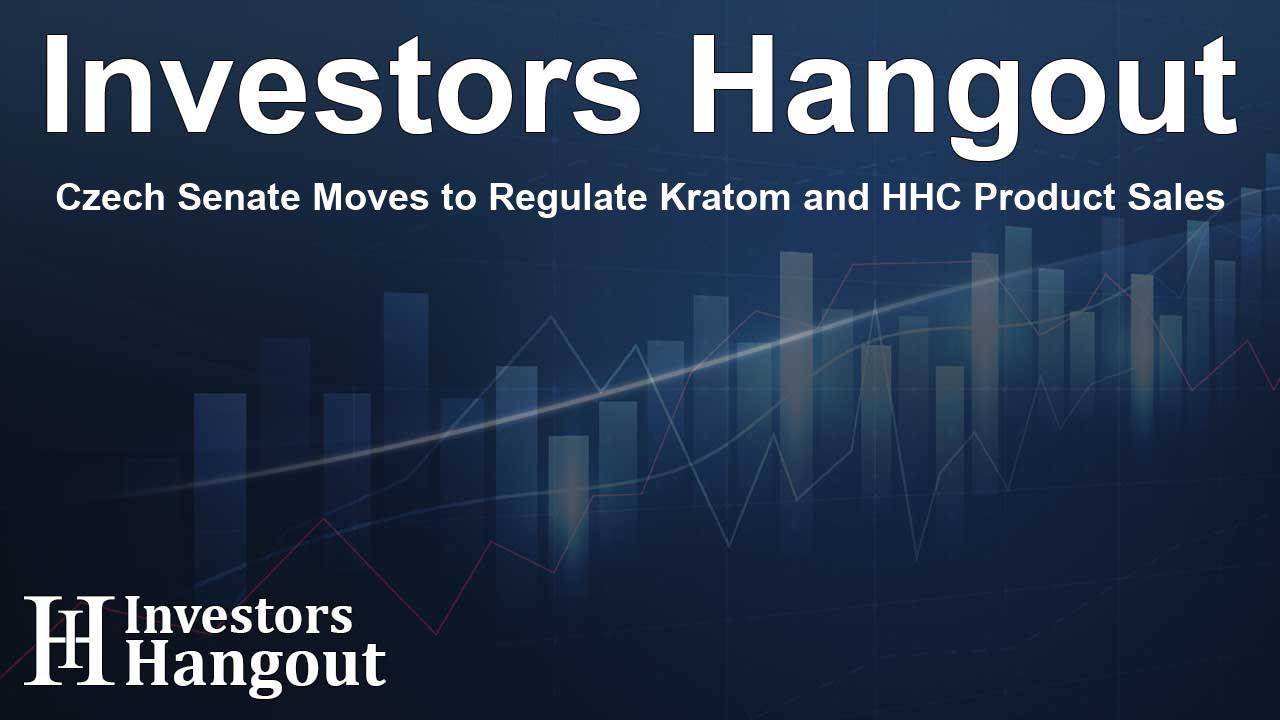Czech Senate Moves to Regulate Kratom and HHC Product Sales

Czech Senate Takes Action on Kratom and HHC
The recent decision by the Czech Senate to propose amendments that would regulate the sale of kratom and HHC products marks a significant shift in how these substances are handled in the country. These amendments will now be sent to the office of President Petr Pavel for consideration. If enacted, new laws will enforce that only adults can purchase these items, and they must be sold in specific licensed stores, starting from December.
Kratom, a tropical plant indigenous to Southeast Asia, is known for its opioid-like effects. It is currently legal in the Czech Republic and has been utilized for various medical purposes, including pain relief and managing opium dependency. People often seek out kratom for its energizing effects, as well as its potential to enhance mood and alleviate discomfort. However, at higher doses, it can lead to sedation and a sense of well-being.
Despite the ongoing debate regarding the safety and efficacy of kratom, the Senate is not considering an outright ban due to its therapeutic applications. Senator Karel Zitterbart expressed his concerns about the lack of regulation, stating, "My 14-year-old son can buy it completely unregulated in the convenience store next door." He emphasized the dangers of an unregulated market, suggesting that pushing the sale underground would only exacerbate the issue. Hence, regulation seems to be a more sensible approach.
Regulation on HHC Products
Similar regulations will apply to HHC products, which have recently gained popularity for their psychoactive effects. HHC, a semi-synthetic cannabinoid derived from THC, has been sold without proper oversight. Some sellers have been circumventing legal restrictions by utilizing hemp-derived THC to create HHC products, which are marketed for their euphoria-inducing experiences and relaxing properties. These products come in various forms, including flowers, oils, resins, and vaping concentrates.
In an alarming incident earlier in January, children in primary schools were reported to have suffered poisoning from HHC-infused sweets, further stressing the need for stringent controls. Since then, there has been increased scrutiny regarding the safety and effects of HHC, leading some nations to implement bans.
The proposed regulations will ensure that kratom and HHC products are only available at specialized stores, eliminating the option for sales via vending machines. Moreover, marketing strategies will need to avoid targeting children, and online sales will require rigorous age verification processes. The Ministry of Health will need to assess and approve any products before they are available for sale.
Ongoing Cannabis Discussions
These amendments are unfolding amid broader discussions on cannabis regulation in the Czech Republic. Earlier this year, the governing coalition expressed support for cannabis cultivation but stopped short of endorsing a fully regulated market. Jind?ich Vobo?il, the former National Drug Coordinator, argues that legalization is still a viable option. He highlighted the ministry's proposal allowing personal cultivation of up to three plants while keeping a mere 50 grams of dried cannabis. However, Vobo?il criticized this limit as impractical, suggesting it would not reflect the typical yield from a single plant.
Additionally, a study from the Faculty of Business Economics has revealed that the country could lose hundreds of millions of euros annually if a regulatory framework for cannabis markets isn't established. They propose a holistic model encompassing self-cultivation, cannabis clubs, and commercial markets, projecting social benefits that could reach CZK 5.5 billion annually.
Future Perspective on Kratom and HHC Regulation
The growing recognition of the need for regulation regarding kratom and HHC indicates a progressive shift toward drug policy in the Czech Republic. It underscores not only the health implications but also the economic factors tied to these substances. As these regulations take shape, it remains to be seen how effective they will be in curbing misuse while allowing adults safe access to products that may offer relief for specific conditions.
Frequently Asked Questions
What is the purpose of the new regulations on kratom and HHC?
The new regulations aim to restrict the sale of kratom and HHC products to adults only and ensure their sale occurs in specialized stores, enhancing public safety.
Will kratom and HHC be banned?
No, the amendments suggest strict regulations rather than outright bans, allowing for safe sale while managing potential risks.
What are the health concerns regarding kratom and HHC?
There are concerns about the safety and efficacy of both kratom and HHC, particularly with misuse among youth and unregulated sales leading to potential health risks.
How will online sales be managed under the new regulations?
Online sales will require strict age verification, ensuring that only adults can purchase kratom and HHC products.
What impact could these regulations have on the market?
The regulations could help stabilize the market by reducing illegal sales while ensuring that consumers have access to safe products.
About The Author
Contact Evelyn Baker privately here. Or send an email with ATTN: Evelyn Baker as the subject to contact@investorshangout.com.
About Investors Hangout
Investors Hangout is a leading online stock forum for financial discussion and learning, offering a wide range of free tools and resources. It draws in traders of all levels, who exchange market knowledge, investigate trading tactics, and keep an eye on industry developments in real time. Featuring financial articles, stock message boards, quotes, charts, company profiles, and live news updates. Through cooperative learning and a wealth of informational resources, it helps users from novices creating their first portfolios to experts honing their techniques. Join Investors Hangout today: https://investorshangout.com/
The content of this article is based on factual, publicly available information and does not represent legal, financial, or investment advice. Investors Hangout does not offer financial advice, and the author is not a licensed financial advisor. Consult a qualified advisor before making any financial or investment decisions based on this article. This article should not be considered advice to purchase, sell, or hold any securities or other investments. If any of the material provided here is inaccurate, please contact us for corrections.
